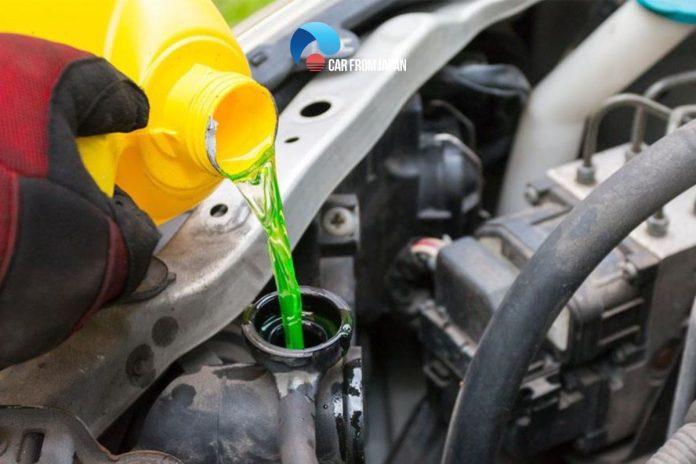A coolant leak is frequently the cause of engine overheating. However, your engine may overheat without leaking coolant where you’ve parked your car in some instances. And this begs the question, why is your engine overheating but coolant full?
More information on why your engine is overheating without a leak may be found in the following tutorial.
We will also address how to detect leaks and repair overheating issues before they cause engine damage.
Contents
What Are the Signs of an Engine Overheating?
Symptom #1 – The temperature light appearance
The good news is that an overheated engine will most likely activate the temperature indicator. If this is the first warning that your car is overheating, consider yourself lucky because you have a good chance of dealing with it before it causes severe damage.
In case you don’t have a specialized temperature indicator, a gauge should suffice. When it starts to move into the red, it means something requires your attention.
Symptom #2 – Your engine makes a ticking or thumping noise
To perform properly, your engine must achieve a certain operating temperature. As a result, your thermostat is designed to prevent coolant flow until the engine warms up.
However, if your engine becomes too hot, the coolant already inside might begin to boil. When the thermostat opens and the cold coolant mixes with the heat, a pounding sound may appear.
A “tick” sound indicates that your engine oil is excessively hot. Hot oil loses its thickness and can no longer lubricate effectively, resulting in the ticking sound.
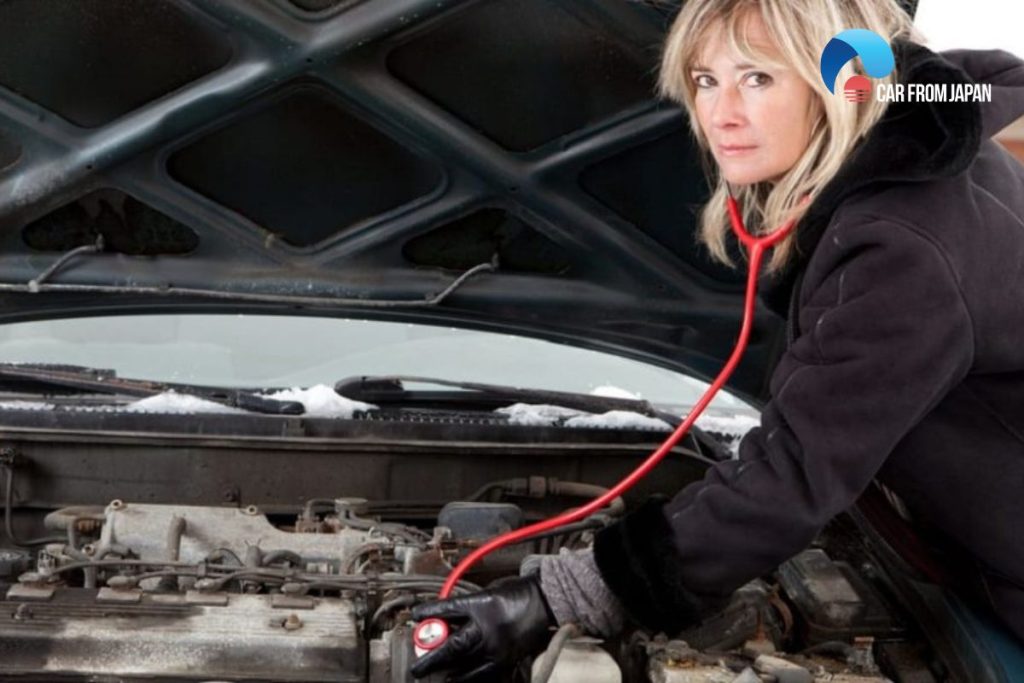
Symptom #3 – You notice a coolant puddle on the ground
Coolant is used to maintain your car at a safe temperature. If there is a leak, it may pool under your car, causing your engine to run out of fuel, which can lead to overheating.
Adding additional coolant may be a temporary answer in this scenario, but you’ll need to track down the leak ultimately. If the coolant reservoir is full but the car is still overheating, something more serious is probably going on.
Symptom #4 – Steam below the hood
Steam flowing out of something is typically a dead giveaway that it’s hot, and your engine is no exception.
If steam begins to billow from under the hood, pull over as quickly as possible. This typically indicates that the coolant within your engine has reached the boiling point and is emitting steam.
Symptom #5 – The engine hood is hot
If your engine has been running for a long time, you should always feel some heat emanating from the hood. However, if you can’t hold your hand on the hood for more than 10 seconds without it hurting, that’s too much.
When it’s safe to do so, turn off the car to allow it to cool down. If it occurs frequently, there is most certainly something that needs your attention.
Symptom #6 – Engine Power Has Dropped
When an engine overheats, it expands, limiting its performance. When you step on the gas, your car will struggle to accelerate because of the lower power.
To be sure, keep an eye out for any of the previously stated symptoms.
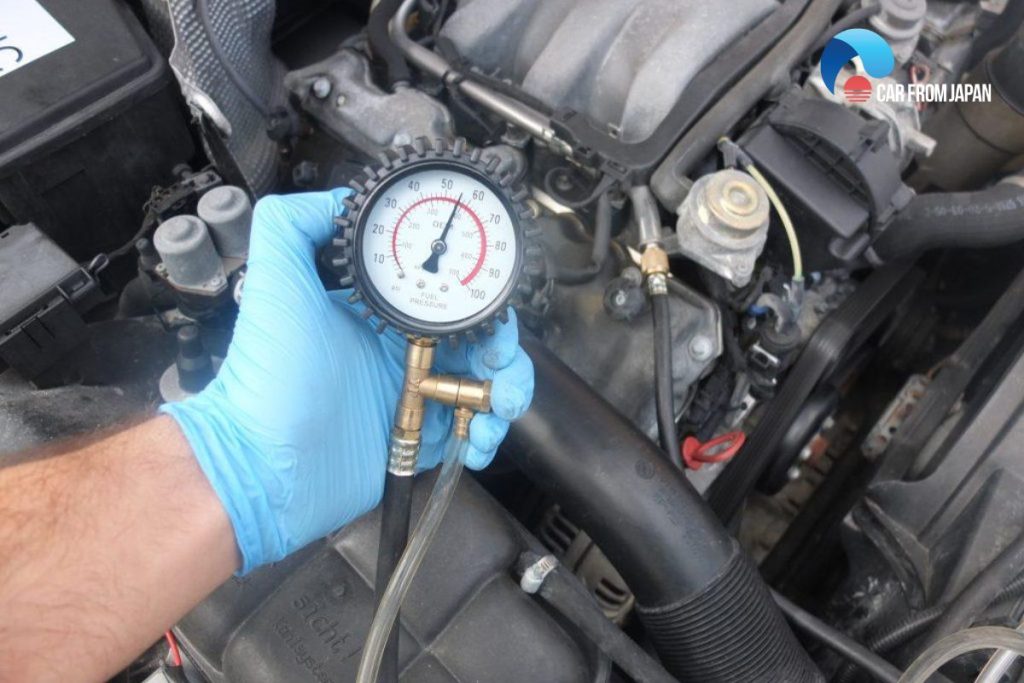
You now have a better understanding of the symptoms of engine overheating. Let’s take a look at some of the most prevalent reasons for car overheating with full coolant.
Engine Overheating But Coolant Full: What Are The Reasons?
Reason #1 – The water pump has failed
The water pump’s job is to circulate coolant from the radiator throughout the remainder of the cooling system. As you can expect, if your water pump fails, your engine will not receive enough coolant, causing it to overheat.
Reason #2 – The Radiator is blocked
The second reason why engine overheating but coolant full is blocked radiators. The coolant absorbs and disperses heat as it travels through the radiator. The coolant may not be able to flow through if it is damaged or if anything has been trapped in it.
Because of its placement towards the front of the car, the radiator is very straightforward to visually check. Remove any debris you find. Unfortunately, if it is damaged, replacement is likely your only alternative.
Reason #3 – Thermostat is broken
The thermostat controls how much coolant flows through the cooling system. It will not be able to do so appropriately if it becomes stuck for whatever reason. If this component fails to function properly, it might cause your engine to overheat.
Reason #4 – The heater core is blocked
We previously said that if your car is overheating but coolant is full, it is most likely due to the liquid’s inability to flow through the cooling system. When your heater core becomes clogged, this is what occurs.
The heater core is in charge of keeping your cabin warm when the weather is chilly, so when you crank it up, it blows hot air. If it’s chilly outside, the coolant will not flow; if it’s broken, your car will overheat.
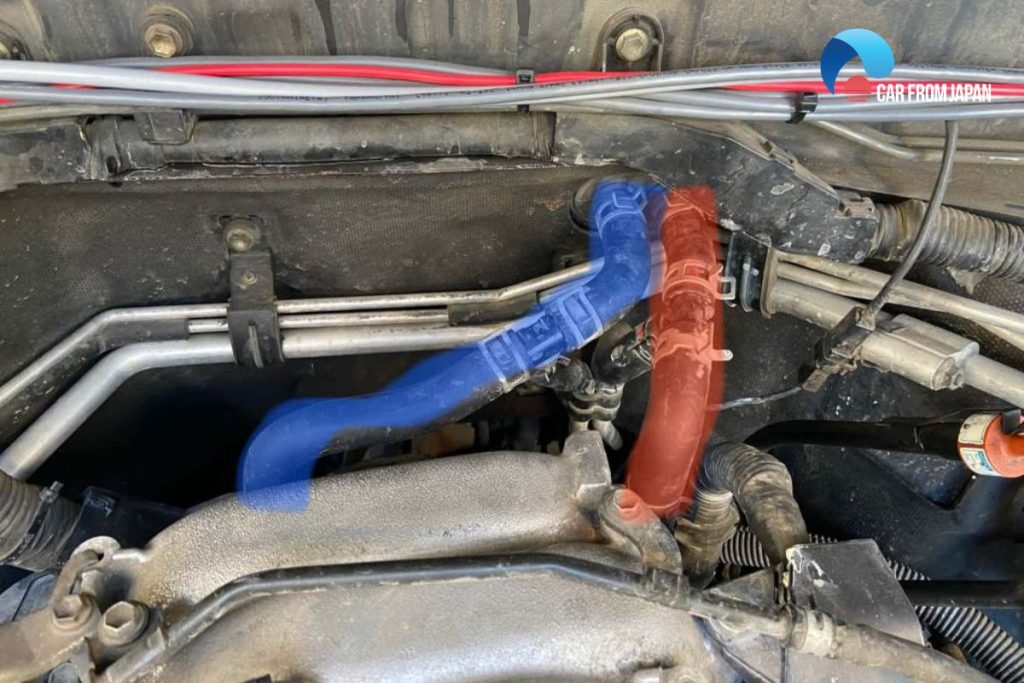
Reason #5 – The head gasket has failed
We felt a bit bad even saying that the head gasket may have blown. A head gasket, in case you didn’t know, is a seal that links the engine block to the cylinder head.
If the engine overheats, this seal may wear out faster. When this occurs, coolant might seep out as it flows between the two.
While the part itself is not costly, getting to it is. When you combine this with the fact that automotive shops normally charge between $50 and $100 per hour, you’ve got yourself a costly fix.
Fortunately, this should be the final warning sign you notice before recognizing the coolant full but car overheating. If it gets to this point, expect a pricey repair.
Reason #6 – Cooling fans aren’t working properly
The fans in your cooling system draw air over your radiator, which helps cool your coolant. A defective fan, on the other hand, will result in insufficient airflow.
Cooling fans are classified into two types: electric and mechanical. And the mechanical types are often driven by a serpentine belt, which may be easily identified as broken.
When you turn on your car or when the engine begins to warm up, the electric fans should turn on.
Remember that faulty fans are more likely to cause overheating while idling because the airflow produced around your radiator while driving is adequate to cool down coolant in your radiator without the intervention of fans.
How Do You Fix The Issue of Engine Overheating But Coolant Full?
Your car overheating is a major problem, and we advise you not to drive it in this situation, since you might harm your engine.
- Allow your vehicle to cool down in a secure location.
- After it has cooled, check the coolant level. If the levels are low, you most likely have a very little leak.
- Next, perform a coolant pressure test on your vehicle to determine whether there is a leak and where the leak is coming from.
- Proceed to the above-mentioned parts and check them for flaws. Begin with the thermostat, cooling fans, water pump, radiator, and radiator hoses.
- If you’re in the mood to toss new components at your car, you may try an elimination procedure.
- Replace the thermostat. Then proceed to the radiator and water pump. Check to see if this helps to address the engine overheating but coolant full issue.
- Be sure you drain out all of the old coolant and replace it with fresh.
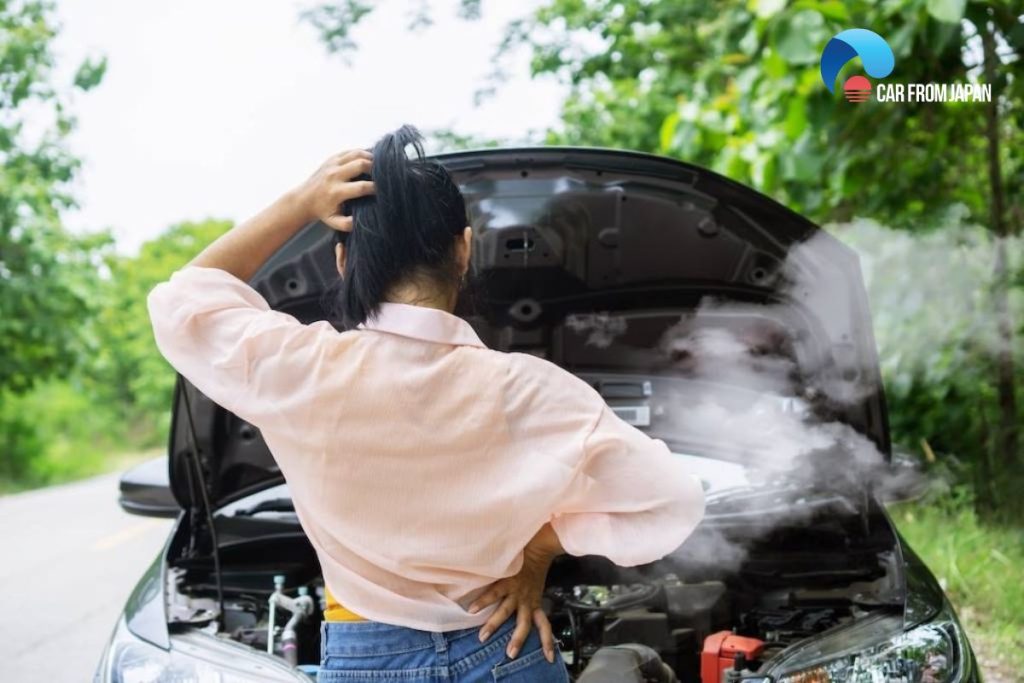
In general, you should replace your coolant regularly, and flushing all that coolant out when servicing/repairing your coolant system is a great opportunity to do so.
If you can’t figure out what’s causing your car running hot but coolant is full, we recommend taking your vehicle to a reputable technician ASAP!
FAQs on Engine Overheating But Coolant Full
What causes coolant to vanish without a leak?
When coolant is being lost but there isn’t a visible leak, the leak is probably internal because the coolant evaporates inside the engine, creating a mist.
It’s also possible that the leak is too little for you to detect; it might be caused by a tiny hole in the radiator, a slightly damaged coolant hose, a water pump problem, or anything else.
How long can an automobile be overheated before it causes damage?
Overheating only takes 30 to 60 seconds for lasting harm to enter a car. You must respond as soon as you see indicators of overheating.
Failure to do so may lead to issues such as coolant leaks, broken radiator caps, and a defective cooling fan.
Can a car’s engine be destroyed by overheating?
Repeated overheating might indicate severe engine damage. Repeated usage of an overheated engine might hasten such harm.
In excessive heat, essential engine parts can fracture, deform, and break, resulting in rapid death for your vehicle’s powertrain.
Can I substitute water for coolant?
Yes, you can use plain water in your cooling system technology, but it is not suggested as a long-term solution, especially in harsh temperature conditions.
Conclusion
The engine overheating but coolant full can happen due to a variety of issues. A blocked radiator, a defective thermostat, a damaged water pump, a faulty cooling fan, plugged radiator hoses, a blown head gasket, or a broken belt are the most prevalent causes.
With no leaks, air trapped in the cooling system may potentially impede coolant flow and cause overheating.
Stop your vehicle and use the techniques in this tutorial to figure out what’s causing the overheating. You may then hire a qualified technician to replace the broken parts and solve the problem.
For more car maintenance tips, follow Car From Japan today!

